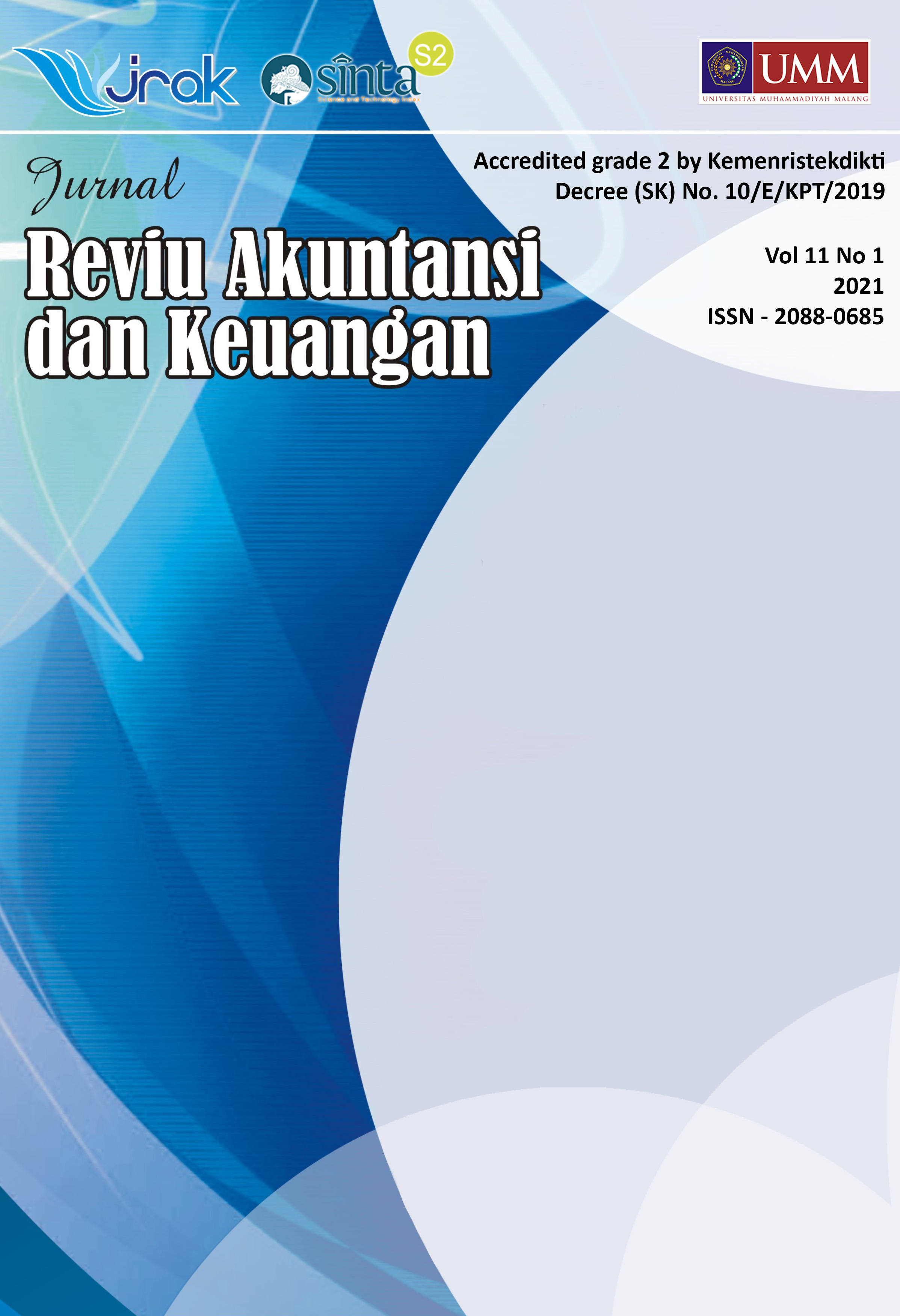Corporate Governance And Tax Aggressiveness: Agency Theory Relationship
DOI:
https://doi.org/10.22219/jrak.v11i1.15610Abstract
The study aimed to provide evidence of whether corporate governance can lower the tendency of companies to perform tax aggressiveness. The term of Tax Aggressiveness was used to further expand the meaning of the act of minimizing taxes by companies. The cash effective tax rate was used as an indicator of the tax aggressiveness of companies. Meanwhile, corporate governance was measured by the institutional ownership, independent commissioner, audit committee, and audit quality. Samples used were the manufacturing companies listed on the Indonesia Stock Exchange (BEI) in 2018. Results of the 97 samples observed indicated that independent commissioners proved to be able to suppress the tendency of companies to commit Tax Aggressiveness; meanwhile, the institutional ownership, audit committee, and audit quality was not proven. The existence of the independent commissioners is able to influence the decisions in creating policies that are set by the management, so the management does not perform an opportunistic action that would benefit the management including committing Tax Aggressiveness.
Downloads
Downloads
Published
Issue
Section
License
Copyright (c) 2021 Bani Alkausar, Farel Badar Kawakibi, Mienati Somya Lasmana

This work is licensed under a Creative Commons Attribution 4.0 International License.

Jurnal Reviu Akuntansi dan Keuangan is licensed under a Creative Commons Attribution-NonCommercial-ShareAlike 4.0 International License.
Authors who publish with this journal agree to the following terms:
- Authors retain copyright and grant the journal right of first publication with the work simultaneously licensed under a Creative Commons Attribution-NonCommercial-ShareAlike 4.0 International License that allows others to share the work with an acknowledgement of the work's authorship and initial publication in this journal.
- Authors are able to enter into separate, additional contractual arrangements for the non-exclusive distribution of the journal's published version of the work (e.g., post it to an institutional repository or publish it in a book), with an acknowledgement of its initial publication in this journal.
- Authors are permitted and encouraged to post their work online (e.g., in institutional repositories or on their website) prior to and during the submission process, as it can lead to productive exchanges, as well as earlier and greater citation of published work (See The Effect of Open Access).










